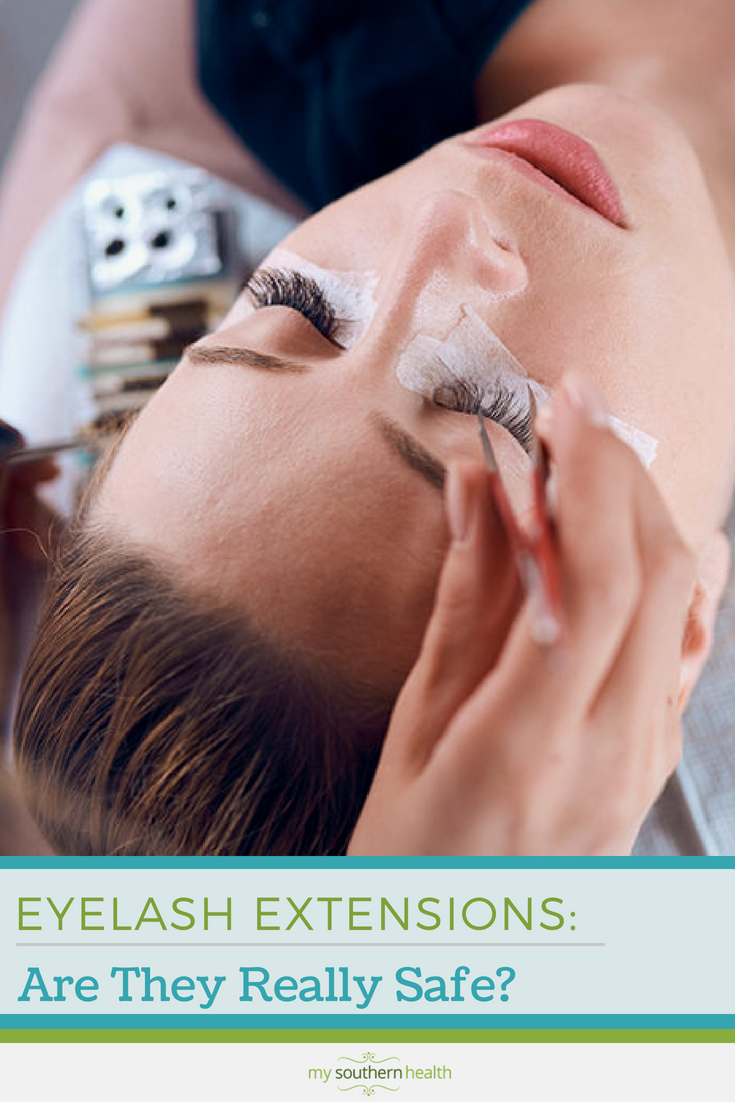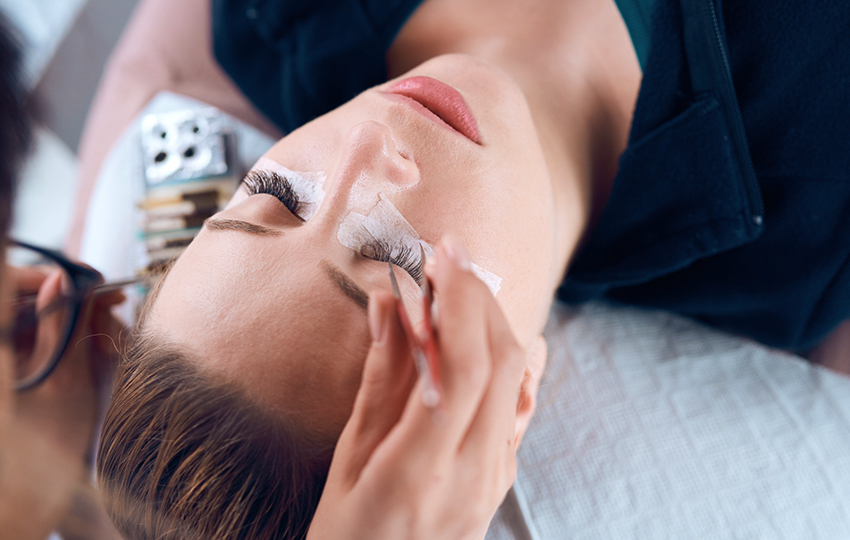As the popularity of lash studios grows, you may be wondering about the dangers of eyelash extensions and what precautions to take. We have the details.
Makeup trends change from season to season and year to year, but one thing has remained the same for decades: Long, lush lashes have always been in style. With brow and lash bars gaining in popularity and lash services offered at various spas and salons, eyelash extensions are no longer just a luxury for red carpet walkers. Anyone can achieve endless fluttery fringe with ease. But before you book an appointment, you should understand the risks of eyelash extensions and do your research.
Christine Rust, M.D., an ophthalmologist at the Vanderbilt Eye Institute Hendersonville, offers three safety tips for eyelash extensions.
1. Do your research on the studio and aesthetician.
“For the State of Tennessee, you must be a certified cosmetologist or aesthetician in order to get training and certification in eyelash extensions,” Rust said. “However, laws vary state to state, with some states having no regulations on who does eyelash extensions. So be wary of treating yourself while on vacation.
Rust recommends asking about credentials. “Make sure they have both a cosmetologist or aesthetician degree, plus a certificate of completion of an in-person training for eyelash extensions,” she said. Check online portfolios or social media feeds to see examples of the person’s work and ask how many eyelash extensions the aesthetician has performed for clients. Online review sites like Yelp are also a great place to look for any red flags. “Make sure to look for a good rating,” Rust said.
2. Consider your sensitivity.
How safe are eyelash extensions? It depends on your sensitivity. Because eyelash extensions are attached with glue, one of the biggest concerns regarding extension application is whether you might be allergic or sensitive to the adhesive. “There is no way to know beforehand if you’ll be allergic to the glue,” Rust said. “However, you can ask the aesthetician to do a skin test before starting.” A skin test involves placing a small amount of the adhesive on the inside of your wrist to see if you develop a reaction.
“If you have a known reaction to past adhesives or tape, you may be at a higher risk of developing an allergic reaction,” Rust cautioned. If this is the case, inform your aesthetician of your sensitivity before going ahead with the procedure, or consider alternative solutions for achieving the look you desire.
If you’re prone to symptoms of dry eyes, you may also want to skip eyelash extensions. “They can worsen dry eye by blocking the oil glands in your eyelid,” Rust explained. “The oil from those glands is responsible for coating the tears and preventing them from evaporating.” The best way to treat a blocked oil gland is by using a warm compress, but that could loosen the glue and cause your eyelash extensions to fall out. Alternatively, you could use artificial tear drops.
3. Be mindful of any changes to your eyes.
Infections from eyelash extensions are rare, Rust said, especially if you care for and clean them as prescribed. “However, the glue can block the oil glands of the eyelids, causing a sty, which can then get infected and cause preseptal cellulitis,” she said. If you get extensions, watch for eyelid swelling, redness, thick discharge and pain. If you experience any of these symptoms, you should first call the salon; they may need to remove the eyelashes immediately. Do not try to remove them yourself. Also call your eye doctor. You may need to be put on antibiotic eye drops or oral antibiotics.


The Vanderbilt Eye Institute assesses and treats a variety of conditions at various locations in Middle Tennessee, including Hendersonville.

